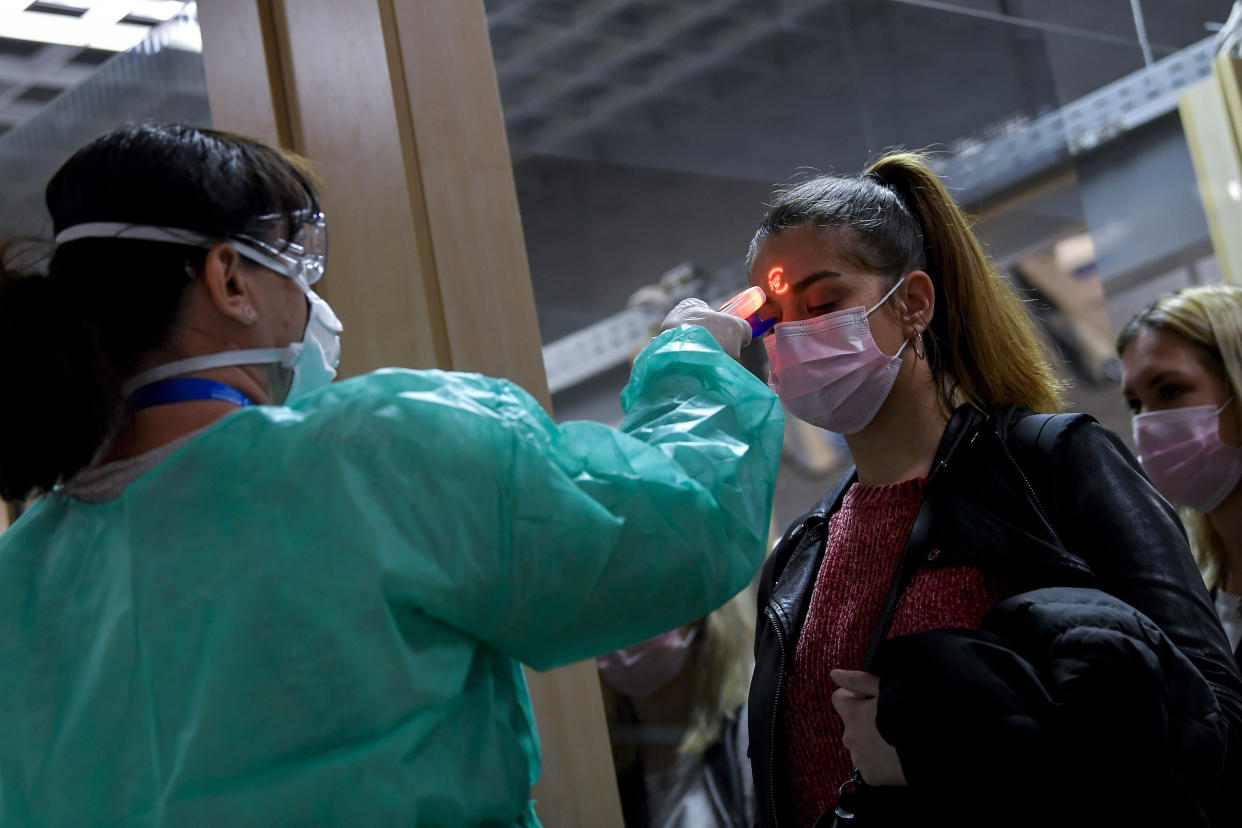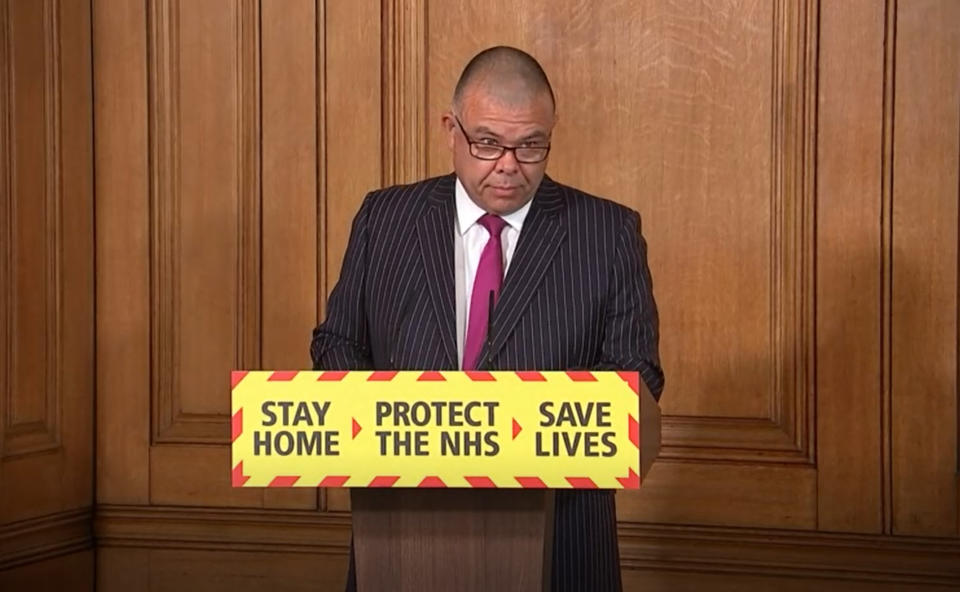Coronavirus: Why the government isn't screening at airports when 15,000 people a day are flying into the UK

A top government scientist has explained why coronavirus screening hasn’t been introduced at airports even as 15,000 people a day fly into the UK.
Jonathan Van-Tam, the deputy chief medical officer for England, said screening methods such as temperature checks at the point of entry can be ineffective as it can take up to 14 days for COVID-19 symptoms to show.
He said the proportion of new cases coming in from overseas would be “minuscule” compared to the rate of transmission already in the UK.
Health secretary Matt Hancock admitted last week that 15,000 people a day are flying into the UK without screening. There are currently more than 2.5 million coronavirus cases worldwide.
Latest coronavirus news, updates and advice
Live: Follow all the latest updates from the UK and around the world
Fact-checker: The number of COVID-19 cases in your local area
6 charts and maps that explain how COVID-19 is spreading
Asked why the UK hasn’t taken the lead of countries such as Japan and Italy in introducing screening at airports and ports, Van-Tam said at the government’s daily coronavirus press conference in Downing Street: “With screening, there is a basic problem that the length of a flight from a far-flung place to the UK is typically no more than 12 hours.
“The problem is people can be infected before they get on the flight and the incubation period for this virus is up to 14 days, and typically five days.”
Van-Tam – referred to as “JVT” by Hancock at the press conference – went on to say he could be infected in a country he was visiting “before I get on the aircraft”.
“I would sail through Heathrow,” he said, “with absolutely no symptoms at all. I won’t have a fever, I won’t be picked out [in a screening test].
“But when I get back to my home in the north of England, at that point I may develop symptoms a few days later.

“Clearly the entry screening hasn’t worked. That’s the basic mathematical problem that goes with it.”
On Wednesday, the Department of Health said there are 129,044 confirmed coronavirus cases in the UK, with 17,337 deaths.
Van-Tam added: “Right now, we are in a situation where there is widespread transmission in the UK. We are turning that down but it is still there and it has not gone away.
“The proportion of new cases coming in from abroad would be minuscule compared to the amount and force of infection currently still moving around in our societies in the UK.”

 Yahoo News
Yahoo News 

